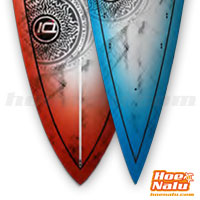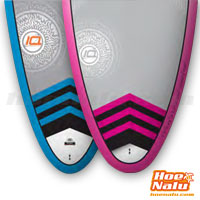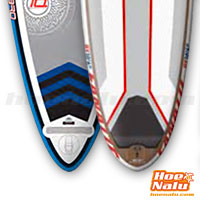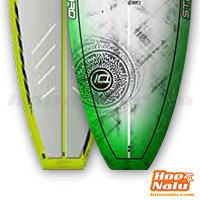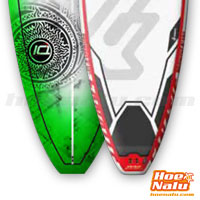ABCDEFGHIJKLMNOPQRSTUVWXYZ Showing all
Sorry, there are no terms with this letter
Paddle Surf terms starting with letter B
Beam (Width)
The beam is the width of a paddleboard. It is the measure from a border to the other one on the widest point of the board. More width (or beam) more stable will be the board.
Bottom
It is the part of the board that is in contact with the water, the down side.
Paddle Surf terms starting with letter C
Catch
Channels
This term is refered to the channels that we can find in the bottom of the board that have been shaped for improving the slide of the board thinking in how the board react with the water and the hydrodinamic features. They performance in combination with the fins and make the board works better.
Concave
When the board has some curved shape in the bottom, we say it has "concave". The concave gives different features to the boards depending on where they are located. Boards can have one or two concaves, then we say the board has double concave.
Paddle Surf terms starting with letter D
Deck
It is the upper side of the board where you stand up on your feet.
Dihedral angle
The dihedral angle is an important part of the design of a paddle for SUP.
When we make the paddle if we have a flat blade, when it runs into the water, we can feel vibrations and the paddle will not be working properly because the push of the water is not optimized.
This negative effect on the stroke could be solved if we put a "virtual fin" on the blade, so the water will be conducted to the external border of the blade and we will have a no vibrations paddle, that's the dihedral angle.
You can get more info about it watching the following video:
When we make the paddle if we have a flat blade, when it runs into the water, we can feel vibrations and the paddle will not be working properly because the push of the water is not optimized.
This negative effect on the stroke could be solved if we put a "virtual fin" on the blade, so the water will be conducted to the external border of the blade and we will have a no vibrations paddle, that's the dihedral angle.
You can get more info about it watching the following video:
Paddle Surf terms starting with letter F
Fins
A surfboard fin or skeg mounted at the tail of a surfboard improves directional stability and control through foot-steering. Fins can provide lateral lift opposed to the water and stabilize the board's trajectory, allowing the surfer to control direction by varying their side-to-side weight distribution.
Fish tail
It is also called "swallow tail" or "doublepin". The tail is curved to two final points like the squashtail, but in the middle of these two points the shape changes from a straight line to a "V" shape. It strongly improves the maneuverability of the paddle board and it is used for shortest boards designed for radical surfing in small waves.
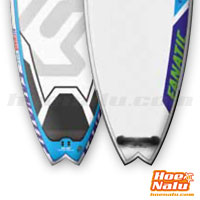

Paddle Surf terms starting with letter G
Grip
It is also called "pad". EVA rubber anti-slip pad that is attached to the deck of the paddle surf board, so that the feet grip well. It can have the rear part more raised to put on your foot in the maneuvers. That part is called kicktail.
Paddle Surf terms starting with letter H
Handle
It is the part of the board where we catch it to transport. For composite boards it usually is a hole in the middle of the board where you put your fingers inside, for inflatable boards it's like a belt made in neoprene or another resistant material to carry the board comfortably.
Hoe He'e Nalu
It's the hawaian word that means "paddle surfing"
Paddle Surf terms starting with letter I
IOSUP
It is the International Organization for developing of SUP, Stand Up Paddle. It is a spanish organization who is linked to the Spanish Surfing Federation (FESURF) but it has not governmental character.
Paddle Surf terms starting with letter J
Jim Terrel
Jim Terrel is the founder of QuickBlade, maybe the best and surely the most famous paddle brand of the world, and he is an authentic revolutionary of this sport. Jim was Olympic champion in rowing with the US team, and from the moment that he discovered the Stand Up Paddle, he has dedicated all his experience in the competition to make the best paddles.
You can meet Jim in the following video:
You can meet Jim in the following video:
Paddle Surf terms starting with letter K
Kick tail
It is the prominent heel that is located on the rear of the pad. It allows us to support the foot to make strength and get a lot of grip to perform radical maneuvers with the board.
Paddle Surf terms starting with letter L
Leash
The "leash" is a elastic string that you tie to the tail of the board and your ankle or knee, depending on your preference, to keep the board joined to you when you fall down into the water, so you will not lose your paddleboard in the ocean. There are two types of leash depending on the use that we make of the paddle board:
And remember: Leashes Save Lifes!
- Regular o straight leash for surfing and tours.
- Coiled leash (or phoned leash) for touring and racing. The difference with the previous one is that the leash is on the board while you are paddling so it doesn't brake you on your way and you can be sure that nothing will tangle around the leash.
And remember: Leashes Save Lifes!
Paddle Surf terms starting with letter M
Mahalo
It is the hawaiian word that means "thank you". If you visit Hawaii, it is usual to hear: Mahalo Nui
Paddle Surf terms starting with letter N
Nose
It is how we call the peak of the board, there are rounded and sharp noses.
Paddle Surf terms starting with letter O
Outline
It is the shape of the paddle board if we see it on an upper view. It's the contour of the board.
Paddle Surf terms starting with letter P
Pad
It is also called "grip". EVA rubber anti-slip pad that is attached to the deck of the paddle surf board, so that the feet grip well. It can have the rear part more raised to put on your foot in the maneuvers. That part is called kicktail.
Pin tail
Paddle Surf terms starting with letter R
Rails
There are the edges or the borders of the paddleboard.
Release
A stroke of Stand Up Paddle consists of four phases (catch, power phase, release, recovery), "release" is the third step. It consists to "take the paddle out of the water".
Rocker
The rocker of a surfboard is the combinations of curves that make up the shape of the board. The bottom rocker of a surfboard is often referred to as the backbone of the board. The bottom rocker can be seen when you look at the profile of the board. A flatter rocker can generate more speed and drive. More rocker also means the board can make turns with a tighter turn radius but can’t generate as much speed. The nose rocker of the surfboard is the amount of curve from the midpoint forward. The purpose of this rocker is to keep the board from digging into the wave.
Round tail
Roundpin tail
RSS Battens Red Paddle Co
The RSS system is exclusive for Red Paddle Co inflatable boards.
Combined with the MSL construction, the RSS system gives inflatable boards a stiffness very close to the composite boards, improving the performance on the water.The RSS consists of two semi-rigid sabers that are inserted in separate compartments located on the edges of the inflatable Red Paddle Co boards that have this ingenious system.
Thanks to this fact it is possible to increase the stiffness of the inflatable boards by 40%
RSS Battens are used in all the boards which the thickness is 100mm / 3.93” (excluded the 9'4" Snapper), so the battens give the same stiffness as the boards that have 120mm / 4.72” of thickness, this fact makes maneuverability better.
In the following video you can see how to use the RSS in a Red Paddle Co board:
Runners
Runners are very short fins that brings specially on onflatable boards for touring and racing and help the board to go straight. It is a good support when the wind is blowing accross the sailing line because the "runners" help us to stay in the direction.
Red Paddle Co is the brand that implement the use of this element to improve the performance of the boards since 2014.
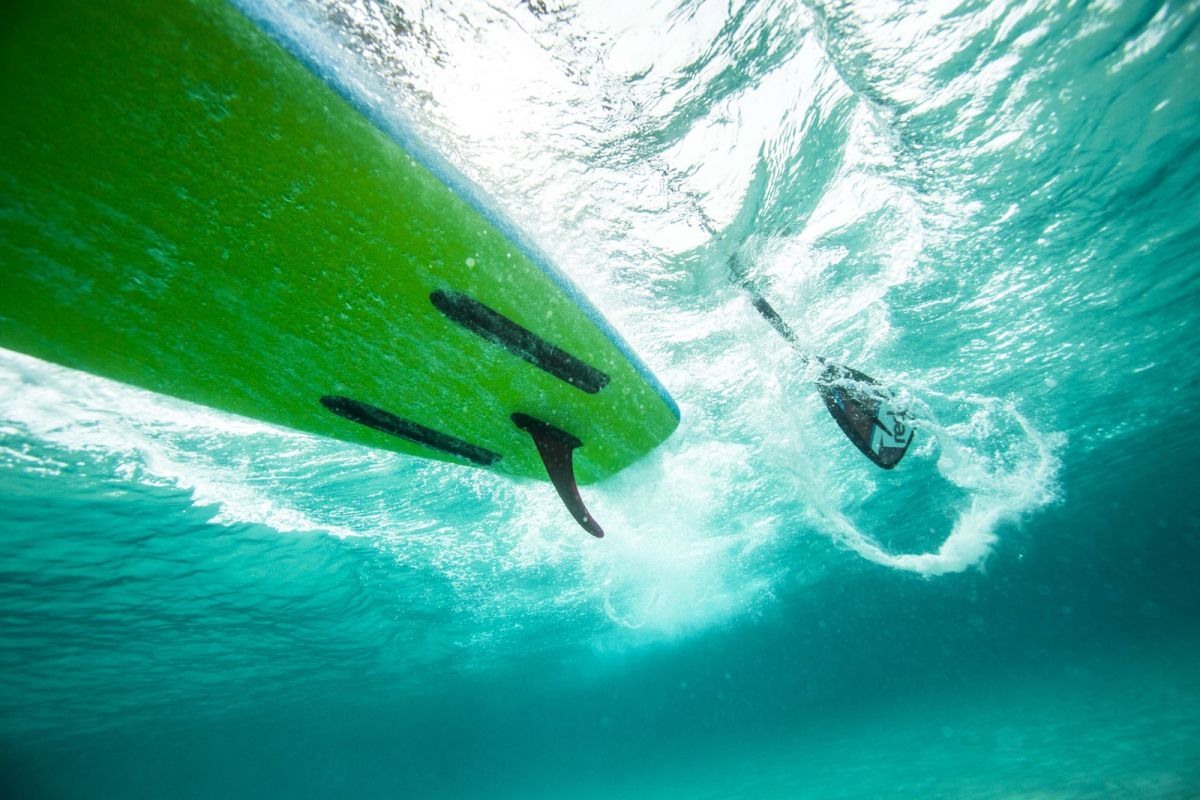
Red Paddle Co is the brand that implement the use of this element to improve the performance of the boards since 2014.

Paddle Surf terms starting with letter S
Shape
The "shape" refers to the shape of the board that relates to determine measures and uses.
Square tail
Squash tail
SSI Shaft Stiffness Information
The flex index: SSI or Shaft Stiffness Information are measures for cataloging the shafts of the paddles depending on the flexibility.
There are some SUP brands that use different degrees of flexibility according to the different sizes and types of blades that they make.
There are some SUP brands that use different degrees of flexibility according to the different sizes and types of blades that they make.
- In general, large blades usually have less flexible shafts and small blades somewhat more flexible.
- This is done to optimize the paddling and for each paddle, to transmit the force to the water in a different way, according to whether we paddled with more cadence and explosiveness or paddled with less rhythm and deeper. It is important to choose the correct paddle when buying it, and try to get the correct information so that your decision is the most appropriate.
- Also keep in mind that the paddles for waves are usually smaller and with more flexible shafts and race are more rigid.
Stance
It is the middle area of the board where we stand up to paddle because it is the balance point of the board.
Swallow tail
Paddle Surf terms starting with letter T
Tail
It is the end of the board, the final part of it, the rear one. It can have different shapes, thinner or larger depending on the use of the board. Small tail is used for surf condition as well as big tail gives you stability.
Thickness
The thickness of the board is measured where the board is more thick. It influences directly on the volume of the board and the volume is the main factor for a stable board.
Paddle Surf terms starting with letter U
US Box
Universal system to put the fin in the fin box that it is used for the mostly of the brands. It is easy to change the fins of the paddleboard because it is the most extended all over the world.
It consists of a rail through which the fin slides and is fixed with a screw and a plate. It is very simple and effective, as well as very resistant.
It consists of a rail through which the fin slides and is fixed with a screw and a plate. It is very simple and effective, as well as very resistant.
Paddle Surf terms starting with letter V
Volume
When we talk about the volume of a Paddle Surfboard we are talking about the liters that the SUP board occupies. Higher volume gives better stability.


